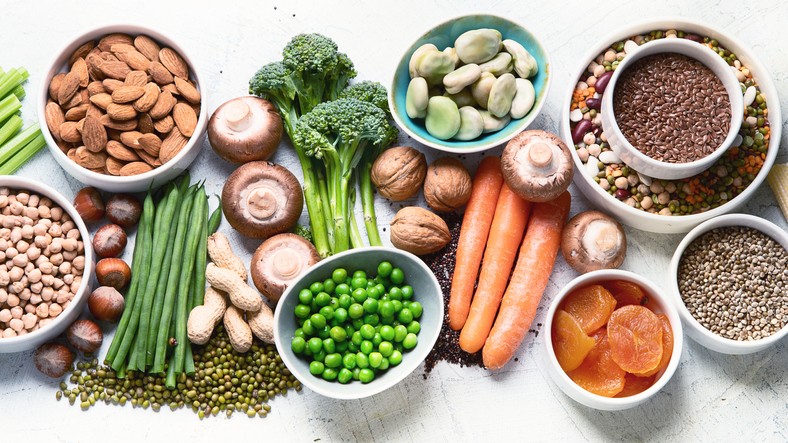Beyond the Chill: Understanding Raynaud's Phenomenon
JAN 29, 2026Raynaud's phenomenon is a rare disorder that affects the blood vessels, most commonly in the fingers and toes, but sometimes also in the nose, ears, or lips.
Read More
We have heard the terms vegetarian and vegan thrown around for years, and more recently the plant-based diet has emerged. The question is: should you be following one of these diets to improve your health?
A lot of the research surrounding animal based foods vs plant-based foods is conflicting and it can be hard to determine what is best for you. So let's explore the different dietary patterns that might work best for you.
Vegetarians abstain from eating meat. Some also exclude anything made with animal byproducts like the gelatin in Jell-O. Some vegetarians do consume foods or products with animal origins.
Vegans do not eat anything with animal origin. Some vegans even exclude honey because it is made from bees. Veganism goes much further than just the diet and aims to exclude all forms of exploitation or cruelty towards animals such as in the make-up, clothing, pharmaceutical, and entertainment industries.
Most people worry about protein intakes when it comes to vegan and vegetarian diets. There are many ways to get complete proteins from plant foods but it will involve eating more variety and adding protein supplements if needed.
If you are planning to try out a vegan or vegetarian diet, you might want to start by meeting with a registered dietitian who can help determine what you protein needs are and how you can meet those needs through plant foods.
The plant-based diet emerged back in the 1700s but was mostly used as part of social justice movements to promote peace, equality and fellowship. As things have changed over the years, including the health of our nation, it is now looked at as a dietary intervention for health.
Colin Campbell, PhD coined the term back in the 1980s while doing work with the U.S. National Academy of Sciences. He came up with the term “plant based” as a way to encompass the importance of consuming low fat, high fiber diets, which is best achieved through a diet rich in vegetables, fruits and whole grains.
It was not called vegan or vegetarian because you can still achieve a low fat, high fiber diet without excluding all animal foods and products.
At this time, there is no one right way to do the plant-based diet. Many follow a combination of vegetarian and vegan principles while others still include some animal proteins. Most would agree that red meats, processed meats, and dairy products like milk and cheese should be limited or excluded when following this dietary pattern.
Advantages to following these dietary patterns include increasing fruit, vegetable, and legume consumption. These foods are high in fiber which can help to support good cardiovascular and digestive health.
Plant foods are also abundant with micronutrients that can support your immune health. However, switching over to a vegetarian diet does not mean that you will automatically start consuming more fruits and vegetables.
Like any other dietary or lifestyle adjustment, you will have to plan more meals with fruits, vegetables and plant proteins like beans, lentils, and tofu. If your goal is to improve your health this year, then following one of these dietary patterns might be for you!
Any dietary pattern that increases your consumption of whole foods and decreases your consumption of processed foods with added sugars and unnecessary fats is going to have positive effects on your health.
You don’t have to change all at once though. Start by omitting meat and other animal products 1-2 days per week. Many start with a “meatless Monday” to test the waters.

Raynaud's phenomenon is a rare disorder that affects the blood vessels, most commonly in the fingers and toes, but sometimes also in the nose, ears, or lips.
Read More
With advancements in minimally invasive surgical techniques and the steps we take to prepare patients for an operation, bariatric surgery is more safe and less invasive than ever before.
Read More
Winter brings beautiful snowy landscapes and cozy evenings, but the cold, dry air—indoors and out—can be harsh on our hands, leading to dryness, cracking, and even more serious issues like frostbite. Protecting your hands is crucial for comfort and s...
Read MoreWhen you need local health information from a trusted source, turn to the CHI Health Better You eNewsletter.